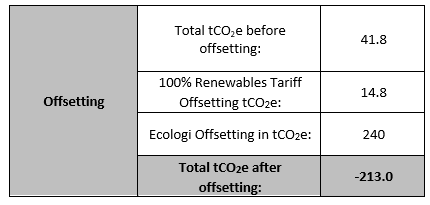Netmatters Achieves 2024 Gold Carbon Charter...
We’re Gold! Netmatters Achieves 2024 Gold Carbon Charter Award Netmatters is excited to announce tha...
Our website uses cookies. This helps us provide you with a good experience on our website. To see what cookies we use and what they do, and to opt-in on non-essential cookies click "change settings". For a detailed explanation, click on "Privacy Policy" otherwise click "Accept Cookies" to enter.
| Company | Domain | ||||||||||||||||||||||||||||||||||||||||||||||||||||||||||||||||||||||||||||||||||||||||||||||||||||||||||||||||||||||||||||||||||||||||||||||||||||||||||||||||||||||||||||||||||||||||||||||||||||||
|
|
|||||||||||||||||||||||||||||||||||||||||||||||||||||||||||||||||||||||||||||||||||||||||||||||||||||||||||||||||||||||||||||||||||||||||||||||||||||||||||||||||||||||||||||||||||||||||||||||||||||||
| Terms & Conditions Privacy Policy | |||||||||||||||||||||||||||||||||||||||||||||||||||||||||||||||||||||||||||||||||||||||||||||||||||||||||||||||||||||||||||||||||||||||||||||||||||||||||||||||||||||||||||||||||||||||||||||||||||||||
1) Netmatters is a service-led IT and technology business, with core company values that commit to minimising the impact of business activities on the environment.
We are Carbon Negative and working toward NetZERO status.
2015- Our carbon footprint was been calculated to be 26.7tCO2e for the year 2020. Employees 39, Turnover £2.3m
2020 -Our carbon footprint was been calculated to be 52.9tCO2e for the year 2020 Employees 85, Turnover £5.2m
2023- Our carbon footprint was calculated to be 47.2tCO2e for the year 2020 Employees 111, Turnover £9.9m For reporting purposes, our 2023 absolute carbon footprint is 47.2tCO2e , before any KPIs or offsetting etc. This is a reduction of 10.8% compared to your previous data from 2020. When using your turnover as a KPI, we have made a 53.1% reduction when compared to the previous data from 2020.
2024 - Our carbon footprint was calculated to be 41.8tCO2e for the year 2024 Employees 114, Turnover £9.9m
For reporting purposes, our 2024 absolute footprint is 41.8tCO2e, before any KPIs or offsetting etc. This is a reduction of 11.5% since the previous data from 2023. When using our turnover as a KPI, we have made a 11.2% reduction when compared to the previous data from 2023.
This footprint includes emissions from all business vehicle mileage and grid electricity supply to our sites (which is sourced from 100% renewable sources via a zero-carbon tariff, reducing our carbon footprint by around 13.5 tCO2e/year).
We received Silver Carbon Charter award in 2019 and have now gone on to achieve the gold award in 2021 & 2023 & 2024.
2) Reduction Targets:
Total Carbon Footprint Target reduction of 10% per year (after adjustments for turnover and business growth)
Fleet Break down 13 Vehicles (100%) (2021)
Full Electric Vehicles - 5 - 39%
Petrol Hybrid Vehicles - 2 - 15%
Diesel Vehicles - 6 - 46%
Fleet Break down 14 Vehicles (100%) (2023)
Full Electric Vehicles - 8 - 58%
Petrol Hybrid Vehicles - 3 - 21%
Diesel Vehicles - 3 - 21%
Fleet Break down 16 Vehicles (100%) (2024)
Full Electric Vehicles - 11 - 69%
Petrol Hybrid Vehicles - 4 - 25%
Diesel Vehicles - 1 - 6%
2030 Target- Electric Vehicles
Full Electric Fleet by 2030
3)Carbon Offset/Additional Extraction Target
Total Carbon Output per year = 47T
Total Carbon Offset via Tree Planting Scheme per year = 240T
Total Carbon Offset via 100% Renewables Tariff 14.8T

Carbon Neutral position = (-213T) pa year, which is 5 times the Carbon Output

Avoided Emissions from Solar PV & Battery in KWH (10,250kWh per year) - 2.8T
2030 Target-
Extracting 10 x our Carbon Output by 2030
NetZero Action Timeline 2024-2028

4) A number of initiatives have already been undertaken to reduce environmental impact and include (but not limited to):
5) As part of the continued commitment to reducing environmental impact, the aim is to reduce total carbon emissions continuously. This will be achieved through:
6)Further Measures for review and consideration:
7) Progress against these points and the overall impact will be measured and reviewed continuously as part of our company's TRUE values and the Environmental Policy updated in line with progress.
Netmatters is committed to offsetting carbon emissions through a tree-planting intitative.
Working with the Ecologi Scheme we are planting trees every month to help offset carbon produced both now and in the future.
We’re Gold! Netmatters Achieves 2024 Gold Carbon Charter Award Netmatters is excited to announce tha...
Almost two years ago to the day, we were thrilled to receive the Silver Carbon Charter Award as host...
As a business, Netmatters pledged that 2021 would be the year that we became carbon neutral. Over th...



